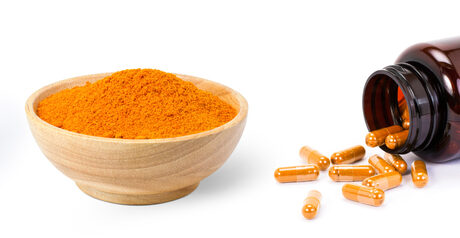If you bring curcumin (turmeric) as a recommendation to a traditional oncologist, they may say that it can interfere with chemotherapy. If this is the response you receive, ask them to send you a few articles that led them to that conclusion. Although your oncologist may be competent in a specific type of cancer, there are many reasons he or she will not recommend this combination therapy:
- Your oncologist may not be up to date on recent evidence showing the positive effects of using curcumin as part of an effective combination cancer therapy (alongside chemotherapy). Many oncologists are expected to comply with their approved treatments according to hospital standards or they may simply be too busy (or burnt out) to keep up with more progressive evidence.
- They may not have the cultural competency to consider treatments outside of their limited toolbox. For example, turmeric is the most commonly used spice in Indian cultures, so does that mean chemotherapy would not be as effective in this population? Quite the contrary – our society is adopting many healthy behaviors from East and South Asian cultures that are continually being studied to reduce cancer risk and minimize cancer severity in the US.
- Physicians who train in traditional medical school receive only a small amount of nutritional education and while nutritional guidelines are constantly changing in our modern world, food quality becomes a prominent issue. So by this time, what they learned is already outdated and they may not have the current knowledge to be able to guide you when it comes to vitamins, nutrients, or how your body processes and absorbs these critical components of health.
In return, you can bring your oncologist a few articles on the evidence and the cultural applications around curcumin advancing cancer therapy:
Curcumin: A Review of Its’ Effects on Human Health (2017)
Curcumin Combination Chemotherapy: The Implication and Efficacy in Cancer (2019)
Use of Curcumin in Multiple Myeloma Patients Intolerant of Steroid Therapy (2020)
Clinical Effects of Curcumin in Enhancing Cancer Therapy: A Systematic Review (2020)
The effectiveness of chemotherapy alone is limited because of:
- Resistance = cancer cells are smart, some of them figure out ways to evade the effects of chemotherapy. All it takes is one cancer cell to grow a completely new tumor, so 99% effective is not good enough.
- Selectivity = chemo destroys cancer cells AND normal cells. Without normal cells, our body loses some of its innate defense strategy, leaving us susceptible to not recovering properly or defend against any cancer cells that remain after chemo has done its work.
- Undesirable side effects = side effects lower the quality of life and the ability to fight off future cancer. It is not enough to get rid of the cancer, you have to make your body inhabitable to cancer so that it does not grow again.
Chemo can be very effective when combined with natural compounds, like curcumin (turmeric). The curcumin + chemo combination therapy addresses all 3 of the above limitations of chemo alone. Curcumin has broad anti-inflammatory, anti-tumor, and antioxidant effects. The hesitation in using it is due to bioavailability, or how well your body absorbs it. We live in a time where there are some great supplements that address this factor and are currently being used by integrative oncologists to heal their patients, not only in the short term, but for their lifetime.
If you’re interested in a curcumin supplement for general health or as a complement to a current cancer therapy, you can try Theracurmin HP (Integrative Therapeutics). This one is made to be better absorbed by your body than most curcumin supplements on the market. Google it to find the best price or use this link to set up a free Fullscript account and get 20% off on us.
Follow us on Facebook, Instagram, or LinkedIn, and feel free to email us at info@thecancerteam.com for the latest on all things cancer.
The Cancer Team

